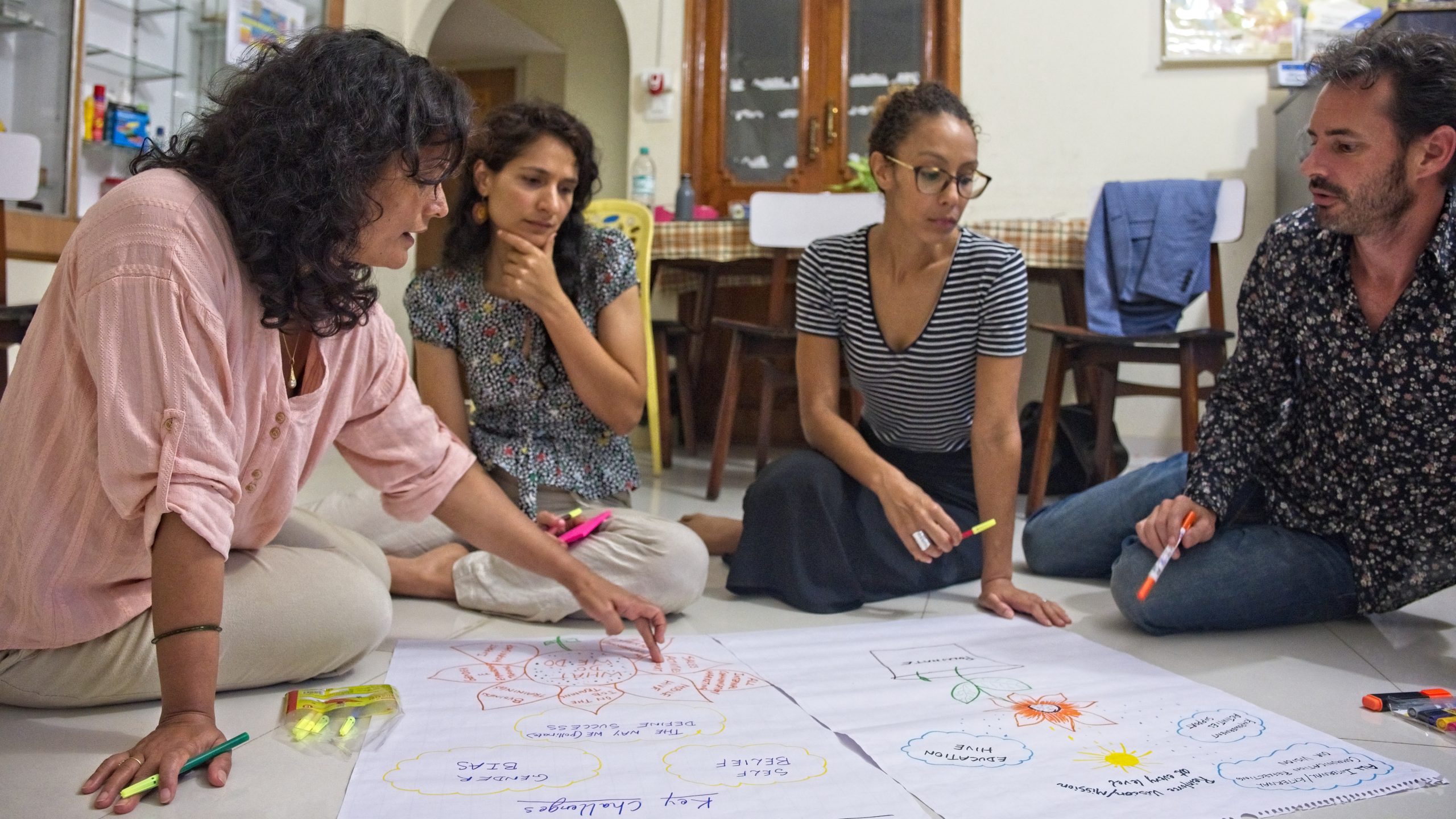When most of us undertake leadership development, it’s in a familiar environment. Sights and sounds are rarely foreign; the color of the walls, the type of chairs, the dull hum of air conditioning—nothing really stands out. You’re unsurprised by the food, the language people speak or what you’ll do that evening. You spend a morning, a day, multiple days with peers, typically people with similar education backgrounds and industries.
It all feels too familiar and you feel too comfortable.
Being in a different country, let alone signing up for a professional development program that is unlike any training you’ve had before, can be intimidating. Uncertainty is stressful, but according to recent Yale research, uncertainty signals the brain to kickstart learning.
This uncertain environment is where the magic happens, and this is where three leaders from Mimal Aboriginal Land Management Corporation (Mimal) found themselves on Pollinate Group’s second Leadership Impact Program in mid October.
Dominic Nicholls (CEO), Tina Yeganeh (Consultant) and Marianne White (Project Coordinator) spent five immersive days with our leaders for a cross-cultural, knowledge sharing program in Bangalore, India.
The purpose of this program was for participants to collaborate on the challenges they face building inclusive and diverse social enterprise solutions to empower local communities. Both organisations are working to empower women in hard to reach communities, and both navigate a myriad of cultural and societal considerations to enable positive change.
Problem statements to action
On the first morning, everyone was a little unsure of where the next five days would take them.
Someone bravely voiced their biggest fear: we do a lot of talking and often no action eventuates. To tackle this on day one we selected problem statements and pitched solutions to the room by day two, refining the pitch on subsequent days.
In response to confronting some of the biggest questions weighing down organisations, the problem statements selected by participants were:
- How might we create an environment of growth and movement for women entrepreneurs in Pollinate Group?
- Imagine if Australia’s Indigenous sector was a world leader in learning and collaboration?
To help teams tackle their problem statements from all angles, participants visited the neglected communities Pollinate Group serves, networked with social enterprise leaders, explored self awareness, engaged in organisational theory, and experienced food and culture in the Silicon Valley of India.
For Dominic Nicholls, working with real problem statements led to meaningful outcomes. “I enjoyed the focus on strategy and the ability to focus on a defined problem shared by both organisations, with rapid prototyping to solutions.”
“I tackled immense personal growth alongside professional growth in an unusual, rich, and at times overwhelming environment.” Tina Yeganeh.
“People talk about being out of their comfort zone as the place learning really happens. I experienced that, and I observed that in others,” shares Sita Adhikari, Director of Impact.
A new way to share lessons across the world
The unlikely collaboration between organisations working in the urban slums of India and remote Indigenous Australia was made possible by the support of Australian Ethical, who support both Pollinate Group and Mimal independently on their missions to empower women and deliver environmental outcomes through regular programs.
“The idea was sparked by serendipitous conversations between like-minded people with an inclination to think outside the box and a passion for creating genuine opportunities for women and the environment. Australian Ethical showed immense leadership, vision and agility to enable Mimal and Pollinate Group to share this one-of-a-kind learning experience,” shares Biheng Zhang, Director of Philanthropy.
Australian Ethical saw the power of collaboration in connecting the organisations, and creating the space for both groups to enhance their impact in their communities.
“We supported this initiative because of how it can upskill the work Mimal is doing, and because we’ve seen the incredible work of Pollinate Group. For us the most exciting aspect was the potential for shared learning between two organisations working on similar issues in different parts of the world,” states Nick Chadwick, Foundation Officer, Australian Ethical.
Chadwick adds, “Collaborative learning programs are rare opportunities for charities to take time out to strategically assess their work and learn from external groups. These programs can greatly improve the core work already being funded on the ground, which ultimately improves the outcomes for the beneficiaries we set out to help.”
What next?
The second Leadership Impact Program enabled participants to evaluate their assumptions and be challenged by peers who are equally committed to creating social change, and bring fresh eyes and perspectives. It also created an environment of urgency and a commitment to act.
Already Pollinate Group have started work on defining success for women entrepreneurs beyond income growth, cascading the insights from the program to all levels of the organisation. Teams are also embracing courageous conversations about self belief, and how it can impact an entrepreneur’s growth.
Mimal have committed to adopting the rapid prototyping approach undertaken on the program. They will also develop guiding principles for strengthening their learning culture as well as sharing case studies of past successes.
Over the coming months Pollinate Group looks forward to touching base with Dom, Tina and Marianne to see how their experience in Bangalore continues to impact their work, and to continue knowledge sharing on challenges.
Join us in 2020!
In addition to Mimal Land Management Corporation, our Leadership Impact Program has attracted participants from Worley, Arup, ARENA and Finncorn Consulting. We’re currently accepting expressions of interest from leaders around the world to join us from 4-8 May 2020 or in October 2020.
Share an expression of interest today.
For any questions or more information please contact us via programs@pollinategroup.org

